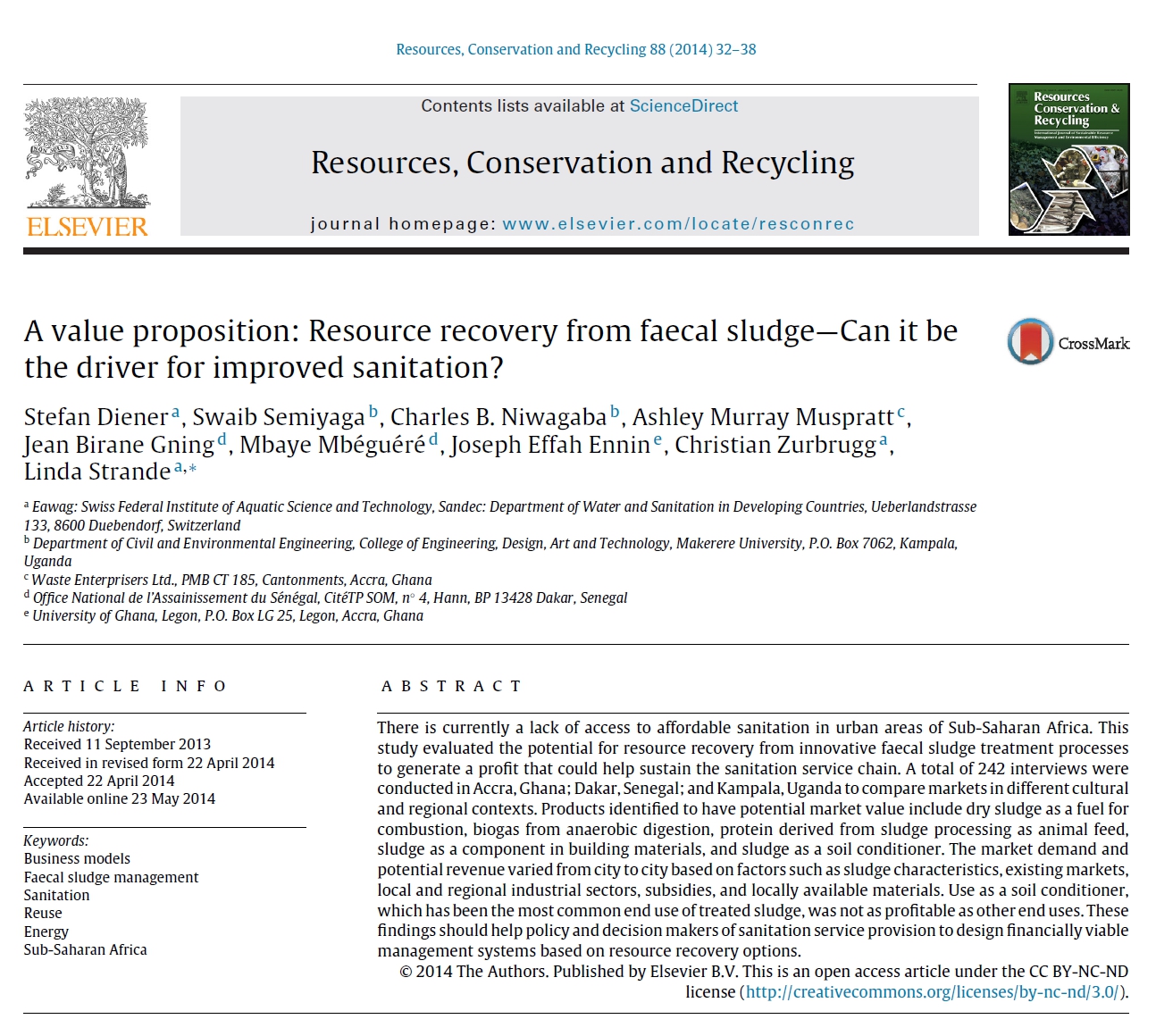A value proposition - Resource recovery from faecal sludge—Can it be the driver for improved sanitation
Diener, S. et al. (2014)

Published in: 2014
Publisher:
Resources, Conservation and Recycling, Elsevier
Author:
Diener, S. et al.
Uploaded by:
SuSanA secretariat
Partner profile:
common upload
11821 Views
244 Downloads
Content - Summary
Abstract
There is currently a lack of access to affordable sanitation in urban areas of Sub-Saharan Africa. This study evaluated the potential for resource recovery from innovative faecal sludge treatment processes to generate a profit that could help sustain the sanitation service chain. A total of 242 interviews were conducted in Accra, Ghana; Dakar, Senegal; and Kampala, Uganda to compare markets in different cultural and regional contexts. Products identified to have potential market value include dry sludge as a fuel for combustion, biogas from anaerobic digestion, protein derived from sludge processing as animal feed,sludge as a component in building materials, and sludge as a soil conditioner. The market demand and potential revenue varied from city to city based on factors such as sludge characteristics, existing markets,local and regional industrial sectors, subsidies, and locally available materials. Use as a soil conditioner,which has been the most common end use of treated sludge, was not as profitable as other end uses. These findings should help policy and decision makers of sanitation service provision to design financially viable management systems based on resource recovery options.
Bibliographic information
Diener, S. et al. (2014). A value proposition - Resource recovery from faecal sludge—Can it be the driver for improved sanitation. Resources, Conservation and Recycling, Elsevier
Filter tags
English Faecal sludge treatment processes Faeces or faecal sludge Food security and productive sanitation (WG5) Sub-Saharan Africa














